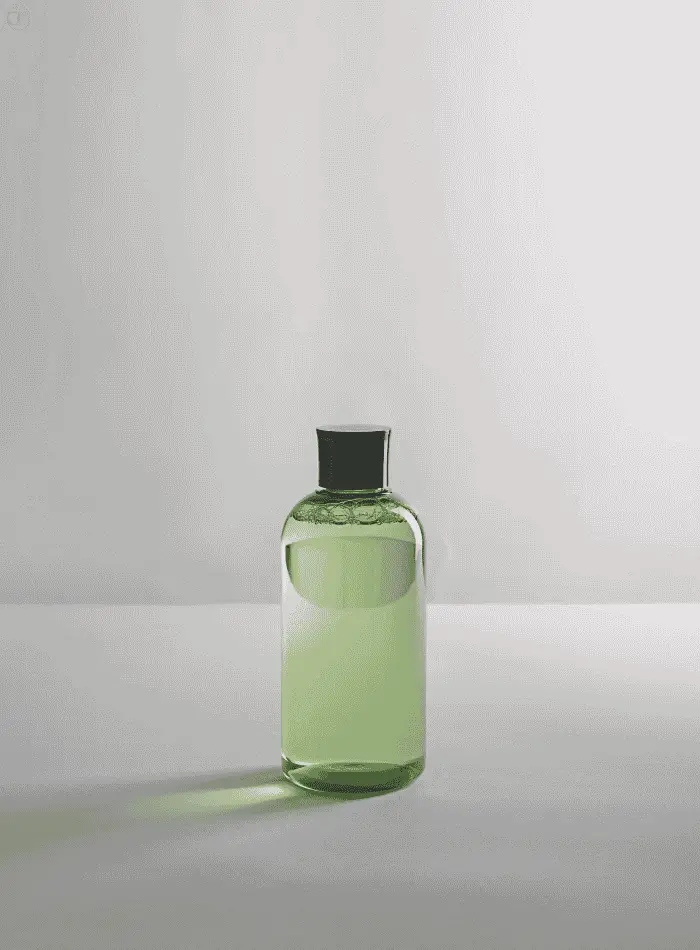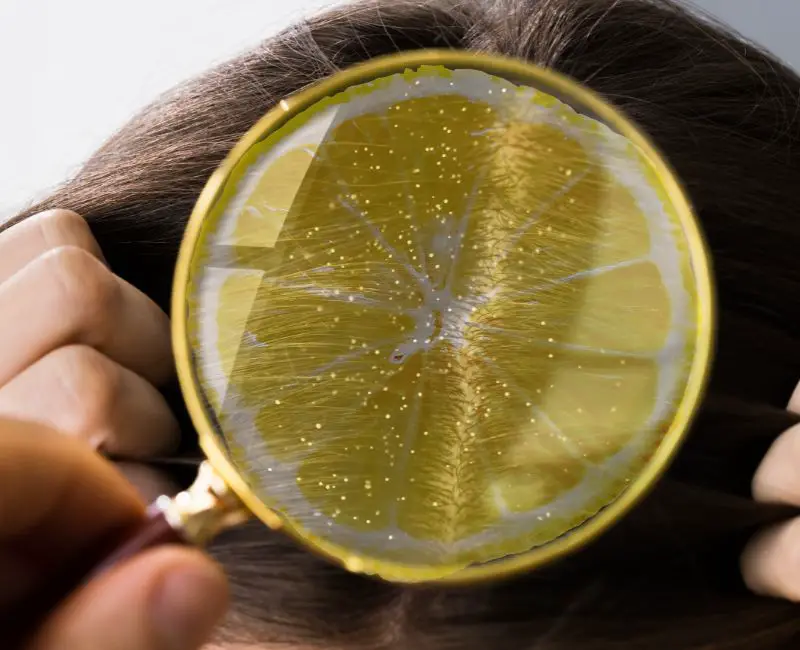Best Dandruff Treatment Dermatologist Recommended

If you’re struggling with dandruff, you’re not alone. It’s a common scalp condition that affects many people, causing itching, flaking, and irritation.
While there are plenty of over-the-counter products promising relief, finding the right treatment can be a challenge.
Dermatologists often recommend specific treatments based on the underlying cause of dandruff, whether it’s dry skin, seborrheic dermatitis, or a fungal infection.
Get best dandruff treatment dermatologist recommended that can help you get rid of flakes and restore a healthy scalp. Hey! Meet below the most effective solutions for lasting relief.
Best Dandruff Treatment Dermatologist Recommended:
Dandruff is a common scalp issue that many people experience at some point.
It can lead to itching, irritation, and visible flakes, which can be both frustrating and uncomfortable.
While shampoos and treatments are widely available, the key to managing dandruff lies in understanding its cause and using the right products.
Dermatologists often suggest treatments tailored to the type of dandruff you have, whether it’s linked to fungal infections, dryness, or inflammation. Check out best dandruff treatment dermatologist recommended to help you maintain a healthy, flake-free scalp.
1. Medicated Shampoos: The First Step in Treatment
Medicated shampoos are usually the first treatment dermatologists recommend for dandruff. These shampoos contain active ingredients that specifically target the causes of dandruff, such as fungal overgrowth, scalp irritation, or excessive oil. Here are some key ingredients to look for in these products:
- Zinc Pyrithione:
This ingredient has antifungal and antibacterial properties that reduce the growth of Malassezia, a fungus that commonly causes dandruff. It also helps soothe inflammation, making it effective for treating seborrheic dermatitis. - Ketoconazole:
Ketoconazole is a potent antifungal agent that addresses the root cause of dandruff by targeting fungal infections. It’s often recommended for more severe dandruff cases and can help reduce both flaking and scalp irritation. - Coal Tar:
Coal tar works by slowing down the rapid skin cell turnover on the scalp, helping to control flakes. It’s particularly useful for those with seborrheic dermatitis or psoriasis. However, it can be drying, so it’s important to use it as directed. - Selenium Sulfide:
This ingredient reduces scalp inflammation and helps control the growth of fungi. It’s beneficial for individuals with oily scalps, as it helps prevent excessive oil buildup, which can worsen dandruff. - Salicylic Acid:
Salicylic acid works by gently exfoliating the scalp, removing dead skin cells that contribute to flakes. While it’s great for oily or flaky scalps, it can be drying, so pairing it with a moisturizing conditioner is recommended.
Recommendation:
Start with a mild, medicated shampoo containing zinc pyrithione or ketoconazole. If your dandruff persists or becomes severe, consult a dermatologist for stronger treatments, such as coal tar or selenium sulfide-based products.
2. Topical Treatments for Targeted Relief
In addition to medicated shampoos, dermatologists may recommend topical treatments for more focused care. These treatments can be applied directly to the scalp to manage specific symptoms like inflammation and itching.
- Topical Steroids:
For cases of seborrheic dermatitis or inflamed scalps, dermatologists may prescribe topical corticosteroids. These medications reduce redness and swelling and help alleviate the discomfort caused by dandruff. It’s important to use these treatments as directed to avoid side effects like skin thinning. - Tea Tree Oil:
Tea tree oil is a natural antifungal and antibacterial agent that can help relieve mild dandruff. It may not be as strong as prescription treatments, but its soothing properties make it an excellent alternative for those with sensitive scalps. Look for shampoos or conditioners that contain tea tree oil for gentle, natural relief.
Recommendation:
If dandruff is causing significant irritation or inflammation, ask your dermatologist about topical corticosteroids. For a more natural approach, consider using products with tea tree oil.
Read Next: How To Avoid Dandruff In Winter
3. Moisturizing Treatments for Dry Scalps
Dryness is another common cause of dandruff. When the scalp becomes too dry, it can flake off, resulting in visible dandruff. To combat this, moisturizing treatments can restore hydration and soothe the scalp.
- Scalp Oils:
Oils like coconut oil, jojoba oil, and argan oil are rich in fatty acids and antioxidants that help nourish and hydrate the scalp. These oils can provide deep moisturization, reducing dryness and flaking. Apply the oil directly to the scalp, leave it on for 20 to 30 minutes, then wash it out with a mild shampoo. - Moisturizing Shampoos and Conditioners:
If your dandruff is caused by dryness, consider switching to a hydrating shampoo and conditioner. Look for products free of sulfates, which can dry out the scalp. Ingredients like aloe vera, glycerin, and shea butter are great for moisturizing and soothing a dry scalp.
Recommendation:
If your dandruff is related to dryness, use moisturizing oils or gentle, hydrating shampoos and conditioners. Avoid harsh products that can exacerbate scalp dryness.
4. Diet and Lifestyle Changes for Better Scalp Health
While topical treatments are effective, dermatologists also stress the importance of supporting scalp health through a balanced diet and healthy lifestyle choices.
- Increase Omega-3 Fatty Acids:
Omega-3 fatty acids, found in foods like salmon, flaxseeds, and walnuts, help reduce inflammation and maintain scalp hydration. A diet rich in omega-3s can promote a healthier scalp and reduce dandruff symptoms. - Manage Stress:
Stress is a well-known trigger for dandruff, particularly for those with seborrheic dermatitis. Reducing stress through techniques like yoga, meditation, or regular exercise can help prevent dandruff flare-ups. - Stay Hydrated:
Dehydration can cause dryness and flakiness on the scalp. Drinking enough water throughout the day keeps your skin and scalp hydrated, reducing the risk of dandruff. Aim for at least 8 cups of water daily.
Recommendation:
Incorporate more omega-3 rich foods into your diet, practice stress-relieving activities, and stay hydrated to support scalp health and minimize dandruff.
5. When to Consult a Dermatologist
If over-the-counter treatments aren’t working or if your dandruff is severe, it’s time to consult a dermatologist. Persistent or worsening dandruff can be a sign of an underlying skin condition such as seborrheic dermatitis or psoriasis, which requires professional diagnosis and treatment.
A dermatologist can prescribe stronger topical treatments, offer personalized advice, and help create a tailored scalp care regimen to address your unique needs.
Managing dandruff requires a combination of effective treatments and healthy habits. Dermatologists often recommend medicated shampoos, topical treatments, and moisturizing solutions based on the underlying cause of your dandruff.
Take Away:
- Dealing with dandruff doesn’t have to be a constant struggle. With the right approach, you can manage and reduce flakes effectively.
- Dermatologists recommend using medicated shampoos with active ingredients like zinc pyrithione and ketoconazole, as well as topical treatments to address inflammation and fungal growth.
- For dry scalps, moisturizing oils and hydrating shampoos can provide much-needed relief.
- Along with these treatments, lifestyle changes like eating omega-3 rich foods, managing stress, and staying hydrated can help promote a healthier scalp.
- If dandruff persists, a visit to the dermatologist can provide more targeted solutions and personalized care.
- Best dandruff treatment dermatologist recommendedwith healthy habits is the most effective way to control dandruff.
- If over-the-counter treatments don’t work, consulting a dermatologist will help you find the best solution for your scalp.
Connect with Us:
- For more tips on managing dandruff and maintaining a healthy scalp, follow us on Pinterest. Find helpful resources and share your favorite tips with others!
FAQs | Best Dandruff Treatment Dermatologist Recommended
Q. What’s the most effective shampoo for dandruff?
Medicated shampoos containing ingredients like zinc pyrithione, ketoconazole, or selenium sulfide are highly recommended by dermatologists. These ingredients help control fungal growth, reduce scalp inflammation, and balance oil production, all of which can improve dandruff.
Q. Can natural remedies help treat dandruff?
Natural remedies like tea tree oil and coconut oil can help with mild dandruff. They have antifungal and soothing properties. However, for more severe dandruff, medicated shampoos or treatments are often more effective.
Q. How often should I use dandruff shampoo?
For optimal results, use dandruff shampoo 2-3 times a week. Be sure to follow the product instructions and alternate with a mild, hydrating shampoo to prevent dryness.
Q. What if dandruff is caused by a dry scalp?
If your dandruff is due to dryness, use moisturizing treatments like coconut oil or hydrating shampoos that are free of sulfates. These can help restore moisture and reduce flaking without further irritating your scalp.
Q. Can lifestyle changes help reduce dandruff?
Yes, lifestyle changes can make a difference. Managing stress, staying hydrated, and eating a diet rich in omega-3 fatty acids can support scalp health. Reducing sugar and processed foods can also help keep dandruff under control.
Q. When should I consult a dermatologist for dandruff?
If your dandruff persists despite using over-the-counter treatments or if you experience severe itching, redness, or hair loss, it’s time to see a dermatologist. They can provide stronger treatments and address underlying conditions like seborrheic dermatitis.






